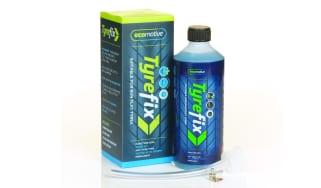What's the best engine oil for my car?
Use our handy guide to find the right engine oil for your car
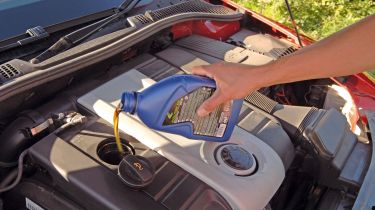
Choosing the best engine oil for your car is crucial for keeping the engine in top working order. Whenever your engine is running, the oil is quickly flowing around all the components in order to prevent any seizure, grinding or overheating. As a result, running an engine without any oil will quickly result in catastrophic damage, and skipping oil changes or using poor-quality oil can also prove very costly.
If your car’s engine oil does need a top up, you’ll be faced with a wide array of different grades and specifications, and this can be daunting if you don’t know what you’re looking for. The types of oil used in diesel engines and petrol engines are completely different to each other, and turbocharged engines also tend to require high-performance oils to match. Matters can get even more confusing when choosing between ‘synthetic’ and ‘semi-synthetic’ oils and the multiple grades of oil available.
All this information may seem quite alarming, but don’t worry as we’re here to explain everything you need to know about choosing the best engine oil.
How do I check my engine oil level?
In order to check your car’s current oil level, you will need to pop open the bonnet and find the dipstick. You’ll also need to make sure that you’re parked on level ground, and that the engine is off and hasn’t been run for several minutes. Once you’re all set, your car’s handbook will explain the process of checking your oil level. This should prove very straightforward to do, even if you’re a complete beginner. We also have a detailed guide that shows how to check and top up your engine oil.
It’s good practice to regularly check your car’s oil level via the dipstick – especially before a long drive. Never wait for a ‘low oil’ warning light to appear on the dashboard, as your engine may have already sustained serious damage at this point. When checking the oil on your dipstick, if it shows on or below the ‘minimum’ marking, do not run the engine again until you have topped it up.
How do I find the right engine oil?
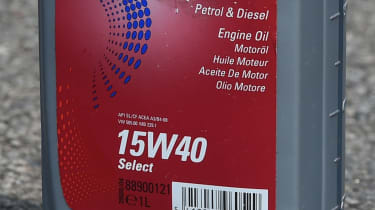
You can find the right engine oil for your car by checking the owner’s manual or asking your local main dealer. These sources will provide the most accurate information direct from your car’s manufacturer. There are also a number of third-party suppliers and online tools where you can find the correct oil for your car by entering your registration number, but these can be less accurate.
So why is it so important to find the correct oil? Many bottles of engine oil may look the same at first glance, but there are a wide range of different grades and formulations to choose from. Using the correct oil for your car will help ensure the health and longevity of your engine.
What are the grades of engine oil?
One of the most important things to get right when choosing oil for your car is the correct grade of engine oil. If you look at the label you’ll see a number of digits, such as 10W-40 or 5W-30 – and it’s these numbers that you’ll need to get right.
Those numbers refer to the viscosity – or ‘thickness’ – of the oil. Modern oils are generally thinner, allowing the oil to flow around the engine quickly when the car is started, which helps to prevent damage caused by metal parts grinding against one another. Modern engines are built with finer tolerances and therefore require thinner oils. Thinner oils – those with lower viscosity – also help with fuel economy.
Most oils carry two sets of numbers because they’re ‘multigrade’ oil. Additives in the oil mean it can change viscosity depending on temperature.
The lower the first number, the better the oil will operate at low temperatures – hence the ‘W’ digit, which denotes winter. The lower the second number, the better it’ll operate at higher temperatures.
While you can mix different oil brands and even different grades without severely damaging your engine, it’s still recommended to use the exact same oil if you’re able to. However, having the wrong oil in your car engine rather than no oil is the lesser of two evils, albeit if you find yourself stuck and only able to access the wrong grade of oil, you should book your car for an oil change as soon as possible.
Oil specifications
To complicate matters, there is a range of different engine oil standards, too, but it’s the ACEA numbers on each oil container that are most relevant.
European — and many Asian — carmakers generally use the following specifications for petrol engines:
- A1 Fuel economy petrol
- A3 High performance and/or extended drain
- A5 Fuel economy petrol with extended drain capability
Diesel engines have very different requirements to petrol engines, so you must ensure you use the correct oil. It’s particularly important if your car is fitted with a diesel particulate filter (DPF) as anyone found driving a diesel vehicle without a DPF could be fined up to £2,500.
As with oil for petrol engines, diesel-specific oil has a range of ratings:
- B1 Fuel economy diesel
- B3 High performance and/or extended drain
- B4 For direct injection passenger car diesel engines
- B5 Fuel economy diesel with extended drain capability
If your car has a diesel particulate filter, you must use a ‘low SAPS’ oil or you risk blocking the DPF. SAPS stands for Sulphated Ash, Phosphorus and Sulphur – all substances which can build up in the DPF.
Look for the following oils:
- C1 Low SAPS (0.5% ash) fuel efficient
- C2 Mid SAPS (0.8% ash) fuel efficient, performance
- C3 Mid SAPS (0.8% ash) less fuel efficient; more bias on performance
Each carmaker will choose the SAPS level most effective for their engine design and so will choose a different ACEA C rating as appropriate.
How do I find the correct grade of oil for my car?
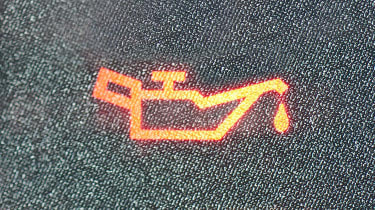
The two best ways to find out the correct grade of oil for your car are to take a look in your car’s owner’s manual, or to give your local main dealer a call.
By giving your main dealer your vehicle’s registration number, they’ll be able to look your car up on their system and tell you the correct grade in seconds.
Take a look at the oil container to ensure the information matches up. It’s worth noting that some carmakers use their own oil specifications, and may list an acceptable alternative grade or specification that’s more widely available. This information will be listed in your car’s handbook.
If you have any problems, your local main dealer should be able to give you advice.
What is synthetic oil?
Some modern engines require synthetic oils, which contain fewer impurities. Whether you can use them will vary from engine to engine, so take a look at your car’s handbook or call your local dealer to check.
There are two main types. Fully synthetic oils offer what is regarded to be the highest performance for modern engines. Semi-synthetic oils contain a mix of synthetic and mineral oil. Synthetic oils are usually more expensive than standard oil, but that extra cost can be offset by the lower frequency at which they need to be changed.
What is mineral oil?
Older and more basic engines, particularly those found in classic cars, usually require mineral oil rather than the synthetic or semi-synthetic varieties. Mineral oil is made from refined crude oil and is often cheaper to buy. However, it tends to degrade at a faster rate, meaning more frequent changes may be required.
When do I need to change my oil?
Some clear indicators that your car needs an oil change include; dark and dirty oil, loud engine noise, oily smells in the cabin and most obviously, if the oil change or check engine light is on. Regularly checking your car’s dipstick will help you to determine the condition of your oil long before any of these other factors present themselves, though, and keeping up with service intervals will also prevent you from running on old and contaminated oil.
Some cars with worn engines burn through a lot of oil – a smoky exhaust can be a sign of this – and it’s not uncommon for cars to develop oil leaks too. If your oil level is dropping and needs topping up frequently, you’ll require a trip to your garage for professional advice.
You can also get ‘longlife’ oils, which are usually fully synthetic. These can last for up to two years or 18,000 miles between changes, saving you money by having longer service intervals. Always check whether your car is compliant before choosing the longlife oil option first.
Do I need to change my oil filter?
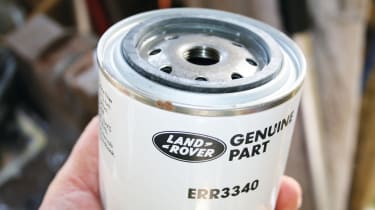
When you have a full oil change, you must change your oil filter — it’s an essential part of a service.
The filter retains a small amount of oil, meaning that your new, clean oil will be contaminated with old, dirty oil if you don’t change it. That’s important because the primary reason for having your car’s engine oil changed is to remove those contaminants.
It’s less important to change your oil filter if you’re simply topping up the oil levels, but you should always ensure your oil filter is changed whenever your car is serviced. How often and how many miles can pass between oil and oil filter changes varies from car to car. Check your owner’s manual or with your local dealer for more information.
Now read our DIY car maintenance checklist...
Find a car with the experts




